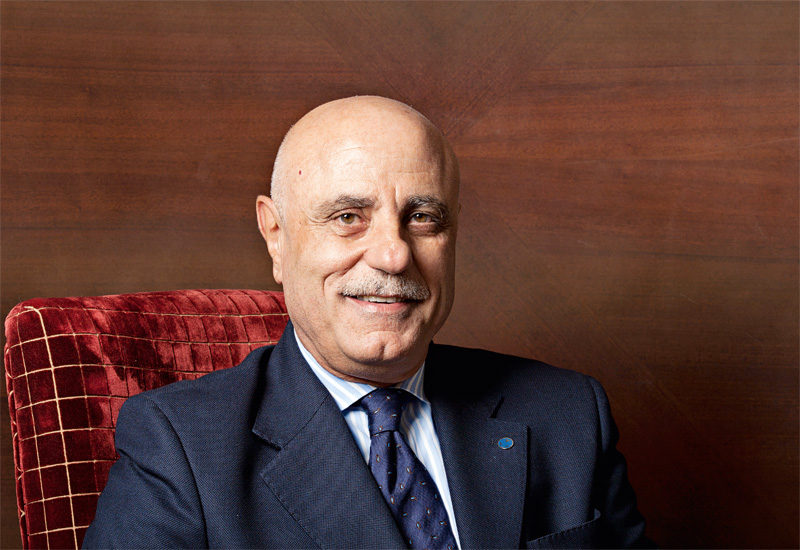Two decades since he took on international operators with the launch of the first UAE-based hotel company, Rotana president and CEO Selim El Zyr is still taking risks. He reveals the group’s expansion plans in some of the region’s most volatile markets, but says Rotana is in safe hands of the man he has earmarked to one day continue his legacy
Just over 20 years ago Selim El Zyr took the brave step of co-founding Abu Dhabi-based Rotana, the first local hotel management company in a market dominated by international chains.
Sitting in room 2013, the Royal Suite at the Beach Rotana Abu Dhabi, which was Rotana’s first hotel to open in 1993, El Zyr says this is where it all began — with a risk.

| Advertisement |
“I had a lot of contacts working for different companies — Sheraton, InterContinental, Hilton, Hyatt — and all of them said ‘Selim, why are you doing that? Go and work for a company. Why would you start this?’,” recalls El Zyr.
“I said I want to try it and in the worst-case scenario I can go back and get a job.
“My immediate target was to open a successful hotel. The existing hotels that were in operation were the Hilton, Sheraton, InterContinental, Meridien and there was a hotel under construction which is Le Royal Meridien today.
So all of these were established companies, but if you don’t feel any challenge, if you have nothing to put you on the edge, you won’t be able to achieve,” he says.
Not only was El Zyr taking on the big boys in the hotel business, he was doing so in a difficult market.
“In 1993, the business in Abu Dhabi was not great so I was anxious to ensure that a company that had just started with only two people in it — chairman Nasser Al Nowais and myself — could operate a five-star hotel in a difficult market where supply was as much as or even a bit higher than demand. My immediate concern was adding 250 rooms to an inventory of 1000 rooms.
“However, a year on from opening, this hotel was achieving the best occupancies.”
Twenty years on, Abu Dhabi is facing a similar challenge to that experienced in 1993, following an influx of hotel openings in the emirate over recent years.
“Business all over the world is circular. You have times when there is a shortage of hotels, everybody builds hotels and when these hotels are ready there’s a surplus of hotels. Then people stop building hotels for a few years, they’re worried, financing becomes difficult, and there’s natural growth in every country and there’s a shortage again.
“In Abu Dhabi there’s been a growth in number of visitors of 10% so if they stop building today the occupancy is going to soar and obviously they’re going to stop building, they cannot continue building in a market like this — they have to think twice before starting a hotel.
“When the investor sees the occupancy has stabilised between 80 and 90% they start building,” continues El Zyr.
“We have lost part of our business, but we certainly have not lost our market share, we are still leaders.
“This hotel [Beach Rotana] has been a success ever since it opened. Even today, with all the new hotels that have opened, this hotel has got the highest market share and positioning in the market,” he adds.
So the Beach Rotana Abu Dhabi proved to be a risk worth taking; last month, Rotana opened its 12th hotel in Abu Dhabi, the Centro Capital Centre (see page 62). The group has another four hotels opening in the capital between now and 2015.
However, Rotana’s most important market today is Dubai, where it recently became the leading operator in terms of number of operational hotels, overtaking Starwood with the opening of its 14th and 15th properties, the Al Ghurair Rayhaan by Rotana and Al Ghurair Arjaan by Rotana complex.
Speaking of the company’s growth, El Zyr says: “I was sure it was going to be a big challenge, but my dream was to have three-to-five hotels within reach that I could micromanage. My ultimate dream was to make it a big company, but a big company to me was 10 to 15 hotels.”
Article continues on next page ...









 Search our database of more than 2,700 industry companies
Search our database of more than 2,700 industry companies









